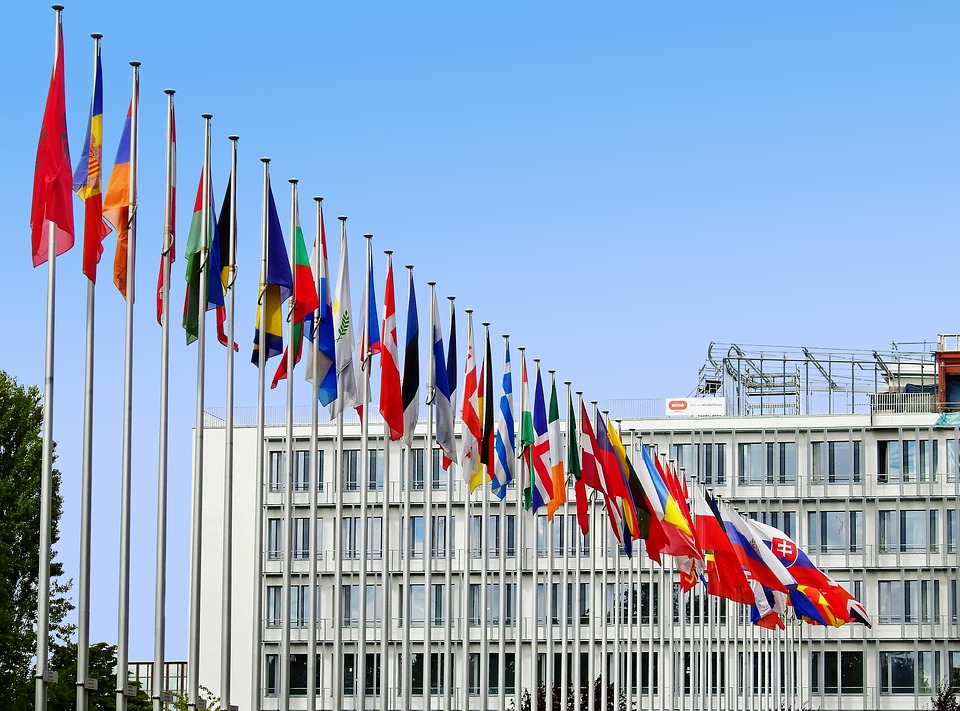 POLICY
POLICY
 POLICY
POLICY
 POLICY
POLICY
Google LLC is reportedly stepping up its lobbying efforts in the European Union as it makes a “last-ditch effort” to limit the impact of the proposed Digital Markets Act that’s expected to become law later this year.
Google, along with other big tech firms such as Apple Inc., was invited to participate in talks with EU lawmakers about the DMA back in November 2020. However, those talks were not taken seriously, as the EU had already finalized its proposals beforehand.
Progress on signing the DMA into law has been slow, but the Financial Times reported today that it does now appear that it will happen sometime this year. That’s a concern for Google, as some of its proposals aim to curb the power of so-called “gatekeepers,” which are defined as tech firms whose platforms dominate the online economy. Last week, Germany’s competition watchdog formally labeled Google as a “gatekeeper,” making it far more vulnerable to stringent domestic oversight than before.
That decision has reportedly prompted Google to launch a furious lobbying campaign, seeking to shoot down the legislation or, at the very least, limit the impact it might have.
“Top executives in California have known about the DMA all along but they are only waking up now,” one Google insider told the Financial Times.
Google executives are said to be concerned the DMA rules will prevent it from promoting key businesses it operates, such as its travel and hospitality services, via its search engine results, a practice known as “self-preferencing.”
Thomas Hoppner at the German law firm Hausfeld told the Financial Times the DMA could force Google to change fundamentally the design of its search results pages.
The DMA is designed to increase competition and focuses on dominant U.S. companies like Google and Facebook, analyst Rob Enderle of the Enderle Group told SiliconANGLE. He said it’s notable that European legislators appear to be more resistant to lobbying efforts than their U.S. counterparts, especially when that lobbying comes from U.S. firms.
“They appear to have a mission to weaken U.S. companies to strengthen European interests,” Enderle said. “Google appears to be the most potent initial test case and if the results are favorable for the EU, expect this provision will be used against a far broader group of firms shortly after that.”
Holger Mueller of Constellation Research Inc. said the DMA will have far-reaching consequences in terms of regulatory control for tech companies within the EU, and could potentially even rewrite the definition of competition as we know it.
“By labeling a vendor as a ‘gatekeeper,’ EU regulators will be able to force more openness on platform providers,” Mueller said. “So Apple might be forced to offer apps in its marketplace that aren’t required to pay royalties to it.”
The analyst said what’s most surprising is how most U.S. tech giants, and also the U.S government, have been so quiet about the DMA.
“The DMA also contains a provision for the nuclear option which allows it to split up tech giants that don’t comply,” he continued. “It remains to be seen how this will pan out, but one thing we know is it will surely slow down some tech giants.”
Such severe consequences seem to explain why Google is now apparently intensifying its lobbying efforts, with multiple EU diplomats and politicians reporting seeing dozens of ads carrying the message that limiting the company would harm small businesses in Europe, the Financial Times reported.
“Please don’t make it harder for my business,” read part of one letter sent by the Connected Commerce Council, a lobbying group that partners with both Google and Amazon.com Inc.
Dutch European parliamentarian Kim van Sparrentak told the Financial Times she had seen a “marked escalation” in lobbying from Google. Among other things, she reported being invited by Google to discuss her views on the DMA at a time of her choosing, and invited to an event organized by the company that promotes the benefits of digital marketing for small business firms.
A second, unnamed EU diplomat, told the Financial Times that his feed is “on overdrive.”
Another group that also includes Google among its members, IAB Europe, has begun campaigning against the DMA’s proposed ban on targeted advertising with its own targeted ads. Unfortunately for Google, its efforts were not appreciated by the EU policy advisor Alderik Oosthoek:
I’m being targeted with a nearly unrecognisable ad aimed at EU officials promoting false info and solely referring to studies of IAB.
This is exactly why we need to ban tracking ads and steer to contextual ads instead. pic.twitter.com/GDjq0Z2fQ6
— Alderik Oosthoek (@a_oosthoek) November 13, 2021
Andreas Schwab, a European Parliament member who’s leading the push for the DMA to become law, told the Financial Times that Google’s efforts are “a little too late” to have much impact on the new legislation. “I get a sense they are worried, and they should be,” he said.
Asked to comment on its lobbying campaign, Google responded via a spokesperson that it believes Europeans should be able to enjoy the best services the company can build, adding it’s concerned that some of the DMA proposals may harm its ability to innovate its products in Europe.
“We care about getting the balance right, and we know our users and customers care too,” the spokesperson said. “Like many others, we’ve engaged openly and constructively with policymakers throughout the legislative process to put across our point of view.”
Support our mission to keep content open and free by engaging with theCUBE community. Join theCUBE’s Alumni Trust Network, where technology leaders connect, share intelligence and create opportunities.
Founded by tech visionaries John Furrier and Dave Vellante, SiliconANGLE Media has built a dynamic ecosystem of industry-leading digital media brands that reach 15+ million elite tech professionals. Our new proprietary theCUBE AI Video Cloud is breaking ground in audience interaction, leveraging theCUBEai.com neural network to help technology companies make data-driven decisions and stay at the forefront of industry conversations.